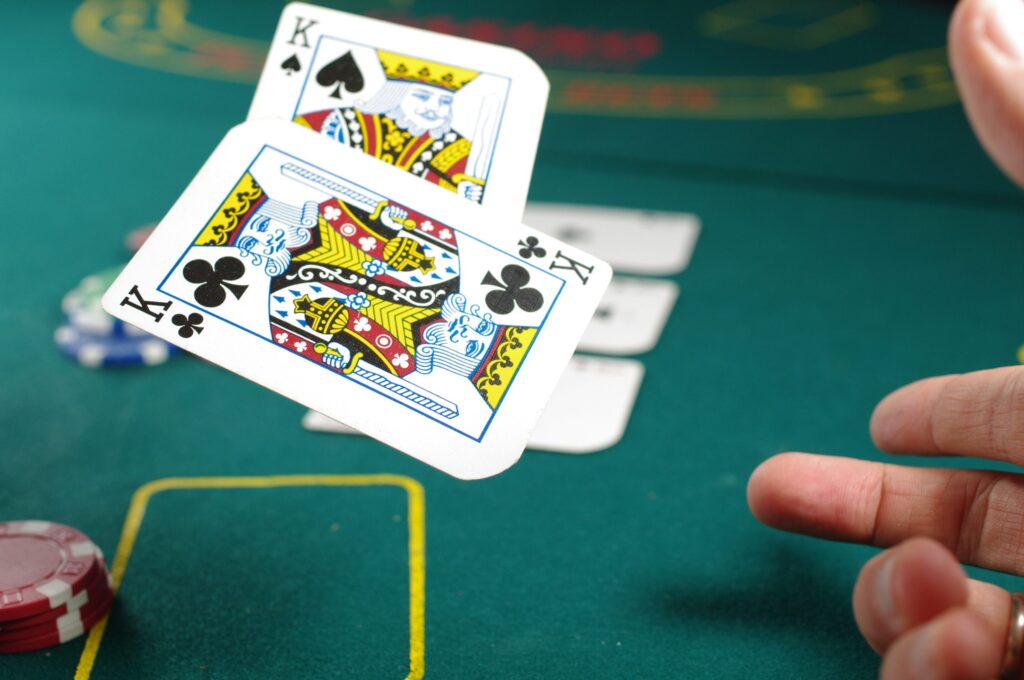Poker is often thought of as a game of luck but it is much more than that. It requires a lot of practice to develop good skills, as well as an analytical mind that understands each strategy and when to use the right one. If poker was easy, everyone would be a professional.

Similarly, not everyone finds success in life but most people have the recipe for ‘How to Be Successful’. Since there are a lot of similarities between playing poker and real life, we thought it apt to break down these four winning tips in poker and in life.
Create connections and tap them when you need it
When you’re starting out as a poker player, the best way to get better is to learn from other players. Whether through virtual chatrooms, in-person tournaments, or even just watching pros in action, you can learn a lot of dos and don’ts. The information you collect can help you create your own winning strategy.
This is similar to networking, which is a key strategy in the real world. If you are an entrepreneur, for example, one of the best ways to learn and succeed is to seek mentorship of former or current CEOs in your industry. They might be able to open doors or, at the very least, point you to the right people who can open them for you. Whatever field you are in, don’t be afraid to seek opportunities to connect with others and nurture those relationships.
Learn efficient bankroll management
According to Poker.org, poor bankroll management is one of the main reasons for failure in the game. Poker, at least at the professional level, involves money, so success is measured by your wins and losses. With proper bankroll management, you will be able to survive less than ideal outcomes in order to play again.
In poker this means knowing when to raise the stakes and by how much, and when to sit out a game. This is connected to understanding your risk-reward ratio, which also comes into play when you make decisions, like investments. Professional poker player Maria Konnikova echoes this sentiment and says that sitting out a game or opting out of an investment, for example, is not equivalent to not being productive. It can just mean that you’re waiting for a better option because the one available to you is too risky for the reward it promises.
Whether in poker or in financial areas of your life it’s best to understand the risks you are getting into so you can make informed decisions. That might mean taking a course on investing, studying trends, or seeking professional insight.
Accept your failures and work on them
That said, there is nothing wrong with lows or defeats. Expect to lose a lot when you start playing poker before you actually begin a winning streak — one that is not based on beginner’s luck, but expert skill.
This is something that you need to accept in real life, too. Forbes.com describes failure as a good thing especially in leadership because it makes room for self-improvement. When you admit that you are not perfect, you work harder to make impactful change. Maybe that means going back to school to work on your communication skills, creating opportunities to collaborate with your peers, or simply readjusting your career path.
Work on your emotional intelligence
One of the skills that poker players work on is their emotional intelligence or EQ. They need to be able to read others and keep their emotions in check to play well.
This skill matters very much off the felt table, too, especially in the world of business. Writer Marisa Sanfilippo says that your EQ comes into play in several areas. Mainly, you need to learn how to communicate with and inspire others an regulate your emotions so you can make objective decisions. If you want to become a successful leader, Sanfilippo explains that you need a high EQ to manage the stress of your employees.
This is something you can learn simply by getting to know people more, practicing empathy toward others, and acknowledging your own emotions.
In poker, it’s easy to measure success. It’s usually the player who has the most chips stacked on the table. In life, it’s a lot harder to say who is more successful. Regardless, these tips — from building your emotional intelligence to your financial sense — can help you reach your goals.
Leave a Reply